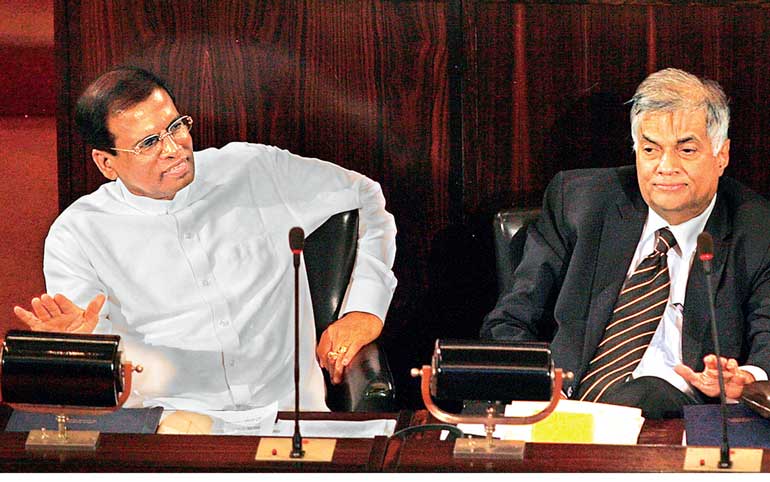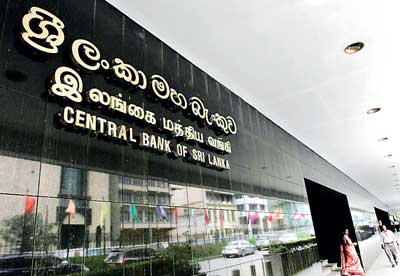Tuesday Feb 24, 2026
Tuesday Feb 24, 2026
Monday, 28 March 2016 00:10 - - {{hitsCtrl.values.hits}}
 Pledge to allow citizens to get information from public bodies
Pledge to allow citizens to get information from public bodies
There was an important pledge given by the current government in its Manifesto seeking election to power at the General Elections held in August, 2015. That was to introduce measures to assure the right of the people to information, a demand that had been there in the air quite for some time. To fulfil this pledge, a draft bill, after it had been approved by all the nine Provincial Councils in terms of the Constitution, has now been presented to Parliament (available at: http://www.media.gov.lk/images/pdf_word/Right_to_information_English.pdf ). If the Bill is enacted, Sri Lanka would be one among 100 countries globally and the 7th country in South Asia to add such a legislation to its law books. Given the current concerns about the fiduciary responsibilities of the rulers, rights of citizens in an economic democracy and the need for maintaining full disclosure and transparency in public affairs, the enactment of such legislation, though somewhat belated, could be viewed as a step taken in the right direction. It is specifically important in the current context since the previous government had vehemently opposed its enactment despite the pressure exerted by civil society organisations for such a law in Sri Lanka. However, the examination of the draft bill shows that it falls short of the aspirations of the citizens on many counts.
 Public’s right to have information to express their views effectively
Public’s right to have information to express their views effectively
The present government has declared that it is committed to delivering ‘economic democracy’ to Sri Lankans as a part of its economic policy package involving the establishment of a ‘social market economy’ in the country. An important element in economic democracy, as this writer has argued in a previous article in the series, is that rulers should have wide-spread consultation with citizens when economic policies are framed (available at: http://www.ft.lk/article/472845/Part-II--Delivering-Economic-Democracy-will-lead-to-controversy-unless-it-is-defined-properly). A consultative process becomes unproductive if governments preserve information to themselves, while keeping citizens in the dark. Economists call this an instance of having ‘asymmetric information’, an ailment that prevents a free market economy to function properly. This is because the person who has the information – in this case, the government – can exploit the person who does not have the information – the citizen who has been denied that opportunity. Hence, right to information seeks to resolve this issue to some extent as far as the public authorities are concerned. It would ensure that citizens could obtain information affecting their lives from public bodies as ‘a right’ and not as something afforded to them as ‘a good gesture’ toward them. In other words, the governments should not consider certain types of information as privileged to public bodies.
Right to Information Acts with bags of exclusions
However, in reality, the right to information legislations do not guarantee the citizens the absolute rights to obtain information from public bodies. They come with a bag of exemptions. In those exemptions, the citizens are told that they do not have the right to obtain certain types of information which are exclusively reserved as ‘privileges’ of public bodies. The most common exclusions involve those relating to national security, foreign governments, third party information shared with public bodies and sensitive information that might disturb market operations.
The exclusion of this type of information is justified by governments on the ground that it serves greater public interest. The presumption here is that individuals seeking information aim at fulfilling a private interest. As such, it could be at variance with greater public interest. Therefore, it does not constitute, it is claimed, denial of economic democracy to citizens. It is in these exemptions  that certain governments have gone beyond the legitimate bounds of public interest.
that certain governments have gone beyond the legitimate bounds of public interest.
Some embarrassing exclusions in the Right to Information Bill
In the case of the Right to Information Bill in Sri Lanka, there are some exemptions which do not sit with best practised right to information laws.
Section 5(1)(c) of the draft Bill is one such exemption that goes beyond the legitimate bound of exemptions normally allowed. The section under reference has denied the citizens the access to a wide range of economic information affecting their lives. The relevant section reads as follows:
“The disclosure of such information would cause serious prejudice to the economy of Sri Lanka by disclosing prematurely decisions to change or continue government economic or financial policies relating to:-
(i) Exchange rates or the control of overseas exchange transactions;
(ii) The regulation of banking or credit;
(iii) Taxation;
(iv) The stability, control and adjustment of prices of goods and services, rents and other costs and rates of wages, salaries and other income; or
(v) The entering into of overseas trade agreements”
Groundless fear of releasing information to the citizens
The justification of the denial has been based on the fear that it “would cause serious prejudice to the economy of Sri Lanka” if such information is made available to the public. This is a groundless fear and it appears that it has been included in the draft bill with little knowledge on the operation of markets. The first two denials relate to the operation of the Central Bank, while the others to important economic policies that are being adopted by the Government. These denials are inconsistent with the Government’s avowed goal of establishing an economic democracy in the country. Economic democracy requires wide consultations on economic policies. As argued above, consultations would become unproductive if citizens are not empowered with requisite knowledge. Knowledge gets built up in citizenry only if they are allowed to have free access to information. If access to information is denied, the citizens would participate in economic consultation with the government without proper knowledge. Such a situation will defeat the Government’s objective of delivering economic democracy to people by making economic consultation a mockery.
Central banks should be accountable to citizens
Through the exclusion of exchange rates, control of overseas exchange transactions and regulation of banking or credit, the draft bill has made the Central Bank unreachable by the citizens. The wisdom portrayed by this exclusion relates to principles of central banking accepted by world nations in an era gone by long ago. The accepted version of central banking today is that since they belong to people and not to politicians in power, they must be made accountable too. Central banks earn the trust of people not because they are owned by the state but because they adhere to a set of governance structure that makes them accountable for the action they take. This was illustrated by this writer in a previous article in the principles of central banking series as follows: “Societies have created central banks and staffed them with responsible professionals so that they would not become yielding hands of those in power to produce more money than necessary and thereby allow its value to fall in the market…. those who run central banks should know that they have to serve the society which has brought the bank into existence and not the political masters who have appointed them. In the event they fail to appreciate this responsibility and choose to act contrary to it, the result will be the creation of more money than necessary causing its value to fall in the market. Eventually, the public will lose their trust in the central bank and the money it has issued”
“Hence, the integrity, professionalism and adherence to good governance practices on the part of those who run central banks are the key to earning the public’s trust and gaining credibility for central banks” (available at: http://www.ft.lk/article/172291/Principles-of-central-banking-1--Why-should-people-place-trust-in-central-banks? ).
Central banks should talk to people
Central banks today are required to talk to people and talk to markets. They can no longer practice the mystique and secrecy which they had been following in the past. A publication by the Geneva based International Centre for Monetary and Banking Studies in 2001 under the title ‘How do Central Banks Talk?’ has summarised the emerging trend in central banking as follows: “Secrecy is no longer the byword in central banking circles. Now central banks are trying to make themselves understood, and the trend is toward greater openness and transparency”. The report further says: “The case for transparency is based on both policy effectiveness and democratic accountability. Monetary policy is more effective when the central bank is better able to condition the market expectations that are so critical to the transmission of monetary policy. Transparency and accountability go hand in hand with central bank independence – a kind of exchange for the broad grant of authority”.
Central banks should reveal even internal deliberations to the public
So, if a central bank today keeps itself married to ‘secrecy’ and ‘mystery’, it does a disservice to itself. It has to disclose information voluntarily and that is what the leading central banks have been doing. The Central Bank of Sri Lanka too under its modernisation project implemented from 2000 to 2004 accepted an open communication policy to keep the markets and citizens informed of what it is planning to do. This involves conveying to the citizens a host of information relating to its activities: what it is trying to achieve, how it goes about doing so and its fall back plans if things go wrong. It requires a modern central bank to reveal to the public its analyses, actions, logic behind its actions and models used for reaching its policy actions. To make their logic and rationale understood by people, modern central banks even disclose their internal deliberations to the public. For instance, the Bank of England, immediately after its monthly Monetary Policy Committee meeting, releases a detailed account of the committee’s deliberations to the public (visit: http://www.bankofengland.co.uk/publications/minutes/Documents/mpc/pdf/2016/mar.pdf ).
Markets are smarter than central banks
If a central bank keeps its action in secrecy and in mystery to the public, as is being mandated in Sri Lanka’s Right to Information Bill, it is inevitable that the markets will make their own speculations on its action. Those speculations are harmful and ‘cause serious prejudice to the economy’ – the malady which the Right to Information bill plans to prevent. A good example is the exchange rate fiasco the country is facing today. The Central Bank has tried to keep the exchange rate at a fixed level at Rs 143 per US dollar. It has used an unorthodox method of dictating a spot rate to commercial banks which it announces to the market. Yet, the markets are smarter than central banks and have manifested the pressure for the exchange rate to depreciate through movement in 1 week forward rates. In that market, the rupee has depreciated to around Rs. 147 per US dollar, which is not explained by the interest rate differential between Sri Lanka rupee and the US dollar for one week (visit: http://www.investing.com/currencies/usd-lkr-forward-rates ). Thus, though the Central Bank keeps information hidden from the public, it cannot manipulate markets which make their own judgments based on the information available from alternative sources.
John Exter: If you have to bet between the market and the central bank, always bet on the side of the market
The implications of abortive exercises done by central banks to maintain stability in markets through unwanted intervention was illustrated by John Exter, founder governor of the Central Bank of Sri Lanka, in an interview in 1988. “Since money runs like water” Exter announced “....market forces every minute of everyday try to restore equilibrium, while central banks worldwide, intervene every minute of every day to prevent it. So, uncertainty abounds. Markets do not like uncertainty. Eventually, markets will win. Accordingly, anyone who bet on the side of the market and not on the side of authorities would also win” (visit: http://www.cbsl.gov.lk/pics_n_docs/02_prs/_docs/lecture/public_lecture_20080828e.pdf ).
Central bank should go for a 3.0 communication policy
It is to this pitfall to which the Right to Information Bill is seeking to drive the citizens. The Central Bank has been voluntarily disclosing information to the public. With the exemptions given in the Act, the Bank will now seek to get protection under the provisions of the Act and refrain from disclosing even the information which it does at present. Its website today is a 1.0 website by which it just informs the public its announcements in one-way communications. In the name of good governance, what the government should do is to compel the Central Bank to go for 3.0 web communications where there is an interactive public dialogue between the Bank and the citizens. Hence, as far as the Central Bank is concerned, the Right to Information Bill is a step taken backward.
Learn from India regarding how sensitive information should be treated
The Indian Right to Information Act which is hailed as one of the best pieces of legislations in the field does not contain that type of restrictions. The Reserve Bank of India is fully subject to the provisions of the Act and has informed the public through its website a detailed description of its activities including the salaries and emoluments paid to all officers of the Bank (visit: https://www.rbi.org.in/Scripts/Righttoinfoact.aspx ).
The Indian Supreme court has even directed RBI recently that it should disclose information relating to banks to the public. Says the Indian Supreme Court: “RBI has a statutory duty to uphold the interest of the public at large, the depositors, the economy and the banking sector of the country, and not the interest of individual banks.
Therefore, RBI is duty bound to comply with the provisions of the RTI Act and disclose the information sought in the instant case. RBI’s contention that disclosure of information would prejudicially affect the economic interest of the State and may lead to systematic crisis for financial stability if information sought is sensitive, was also rejected by the Court as being baseless and it was held that the disclosure in question would serve public interest” (visit: http://www.mondaq.com/india/x/459558/Financial+Services/RBI+Directed+To+Disclose+Information+Under+Right+To+Information+Act ).
Delete the embarrassing exclusions from the bill
Thus, in the interest of economic democracy, the offending provisions relating to the exclusion of the rights of people to get information from the Central Bank should be deleted.
(W A Wijewardena, a former Deputy Governor of the Central Bank of Sri Lanka, can be reached at [email protected] )